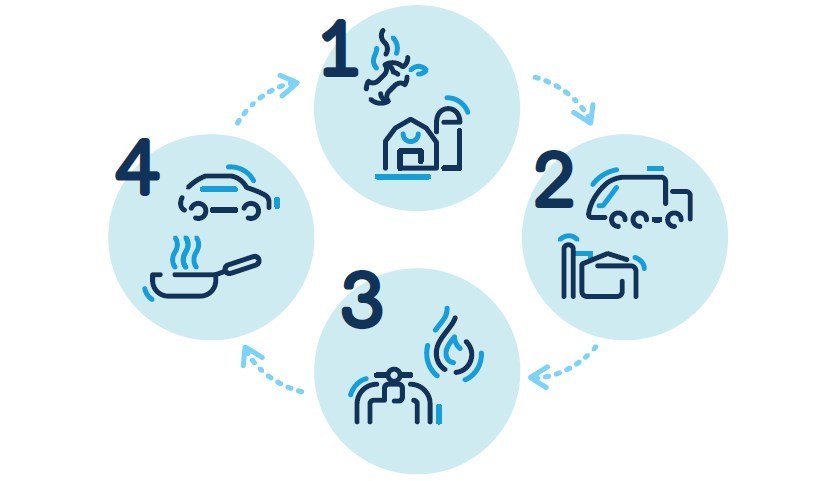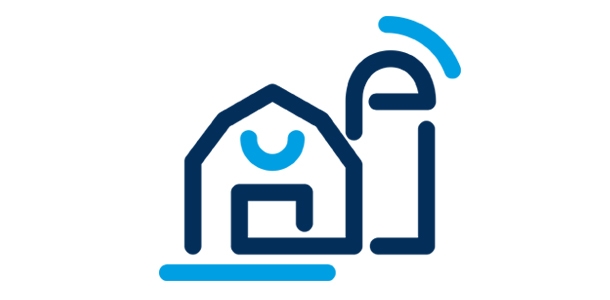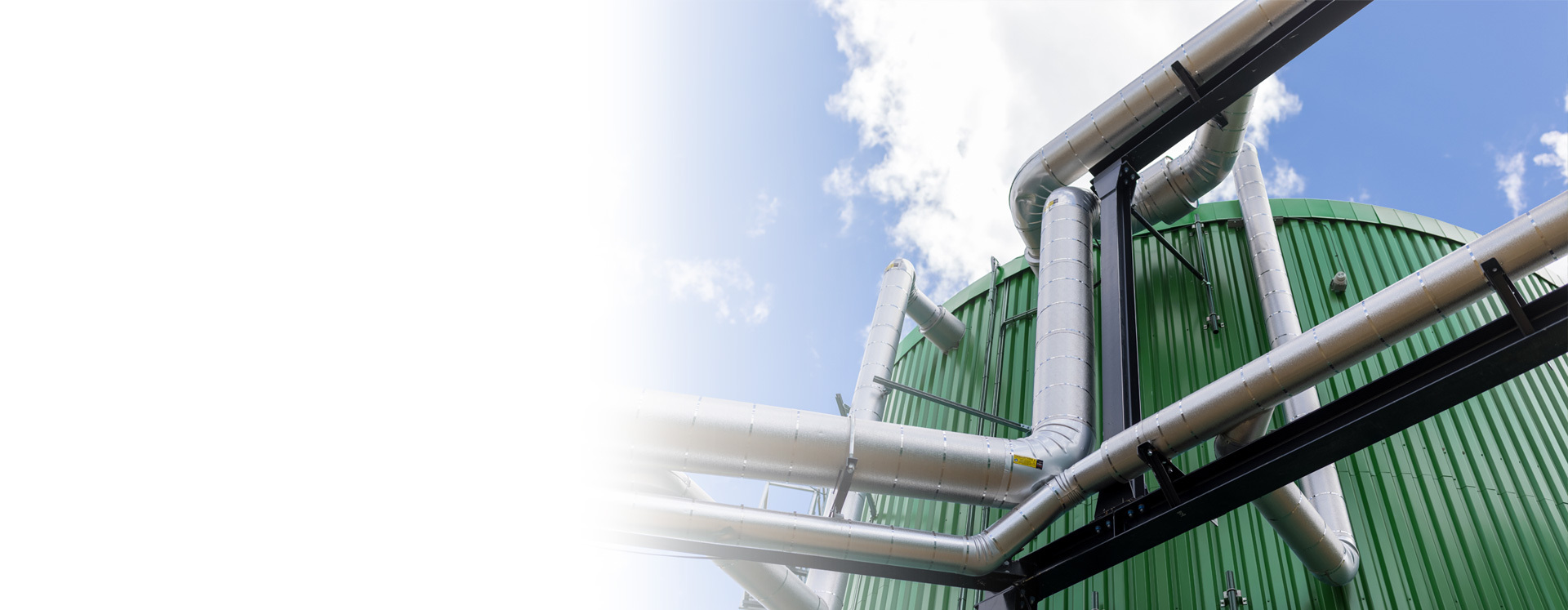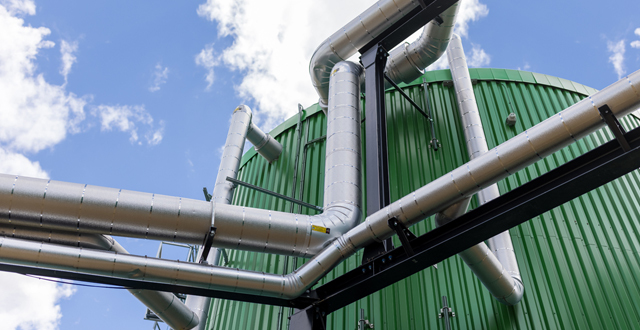An economic and environmental lever
Énergir is investing in and making efforts to facilitate the development of municipal biomethanation projects since the very start of renewable natural gas (RNG) production in Québec. RNG, also known as biomethane, is a forward-looking solution for municipalities consistent with Québec’s organic matter recovery strategy, in addition to being a real lever to achieve Québec’s objectives in the fight against climate change. RNG is 100% renewable energy that can contribute to a circular economy for municipalities.
How is RNG produced?
- Inputs: RNG can be produced from organic waste such as table scraps, processing residue, cow dung, slurry, and sludge from wastewater treatment plants.
- Production: Organic matter is taken to a biodigester to be converted into biogas. The biogas is purified to produce RNG, a gas that is fully interchangeable with fossil natural gas.
- Injection: RNG is measured, odorized, controlled and then injected into Énergir’s network for distribution across Québec.
- Energy recovery: Once injected into Énergir’s network, RNG can be used for the same applications as fossil natural gas: transportation, heating, cooking, hot water, etc. In addition, when produced locally, RNG helps support the development of the regional circular economy.

RNG production: Who can do it?

Regions and municipalities
- Residential organic residues
- Sludge from wastewater treatment plants

Farmers
- Manure and slurries
- Agricultural residues

Landfill sites
- Biogas captured on-site
- Organic residual materials

Insdustries
- Organic materials
- Mud from treatment
Thinking of becoming a renewable natural gas producer?
Renewable natural gas, another step towards a circular economy
The production of renewable natural gas fits perfectly into a circular economy. By recovering methane from the decomposition of organic waste such as table scraps, manure, slurry and wastewater treatment sludge, RNG can create economic benefits for municipalities, farmers, and even some companies.
We can help you at every step of your project
- Help the start-up of your project
- Choose a potential site
- Answer technical questions
- Share best practices and actual case studies
- Put your teams in contact with partners
- Facilitate networking between the project’s stakeholders




